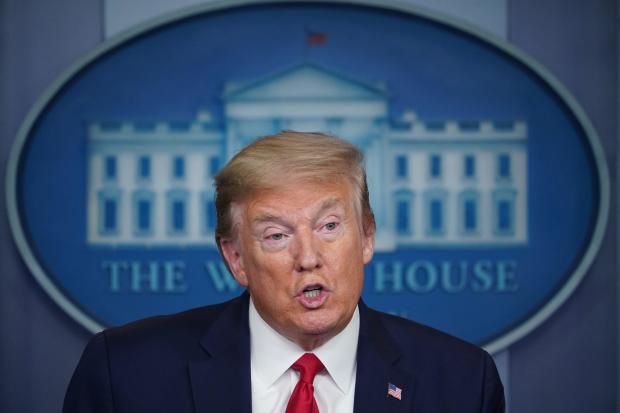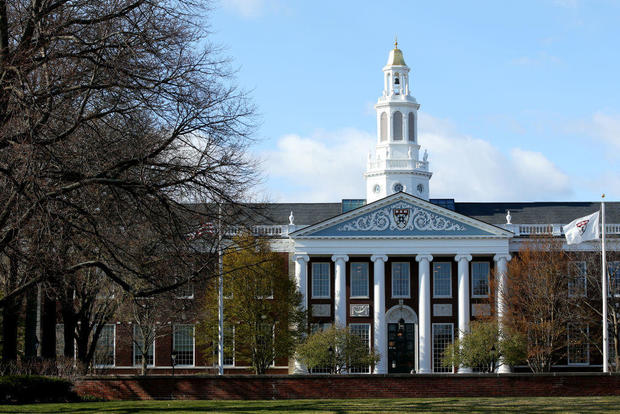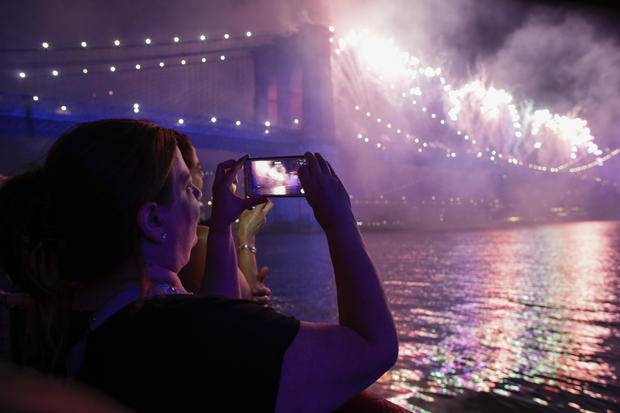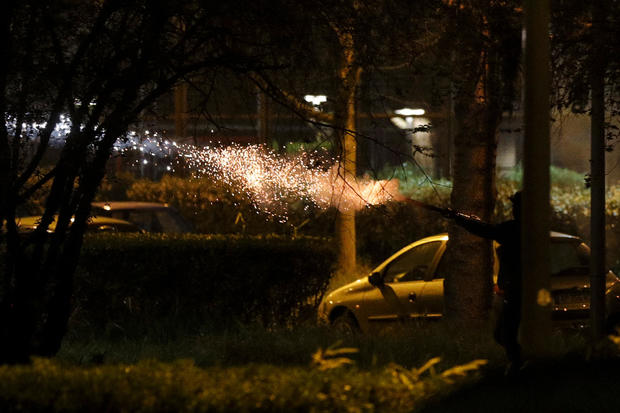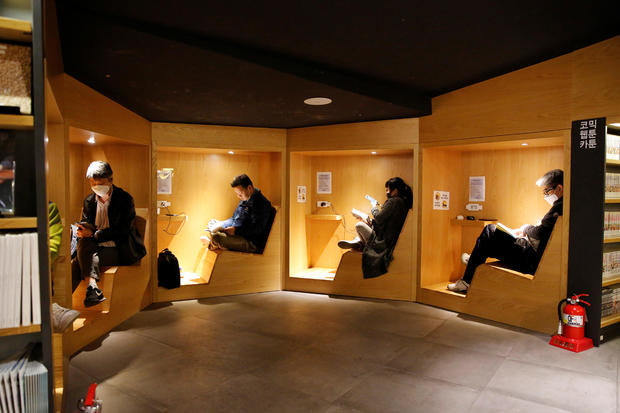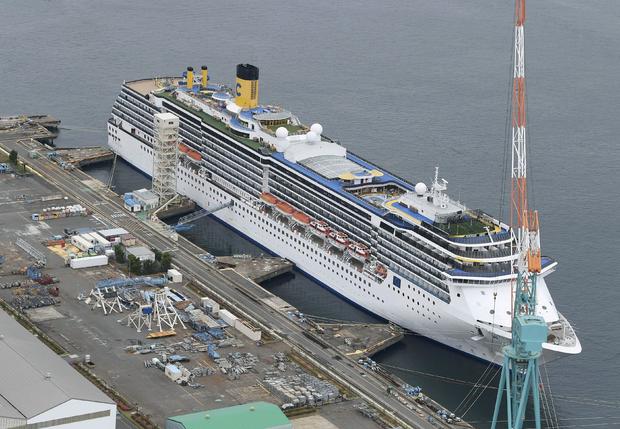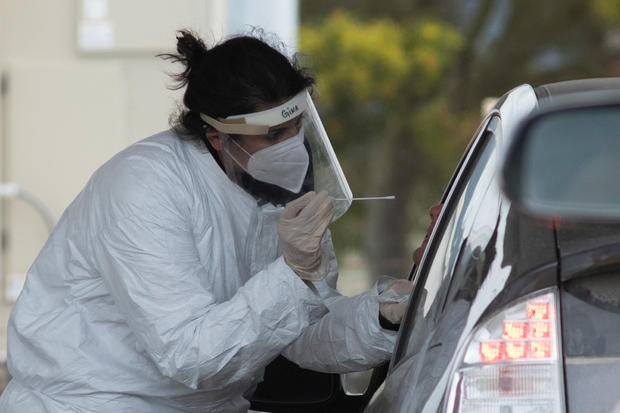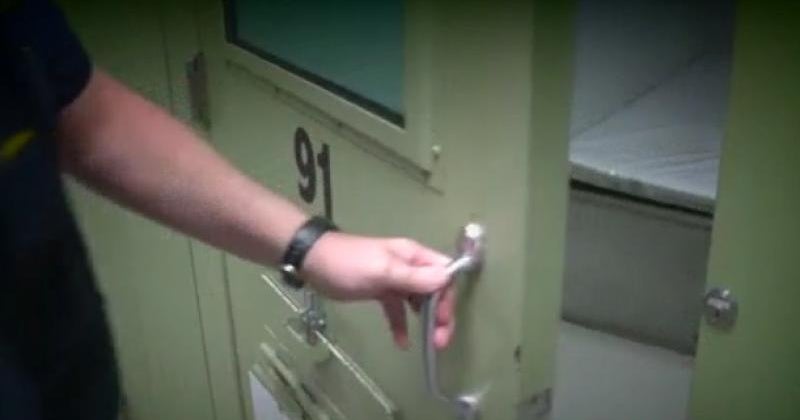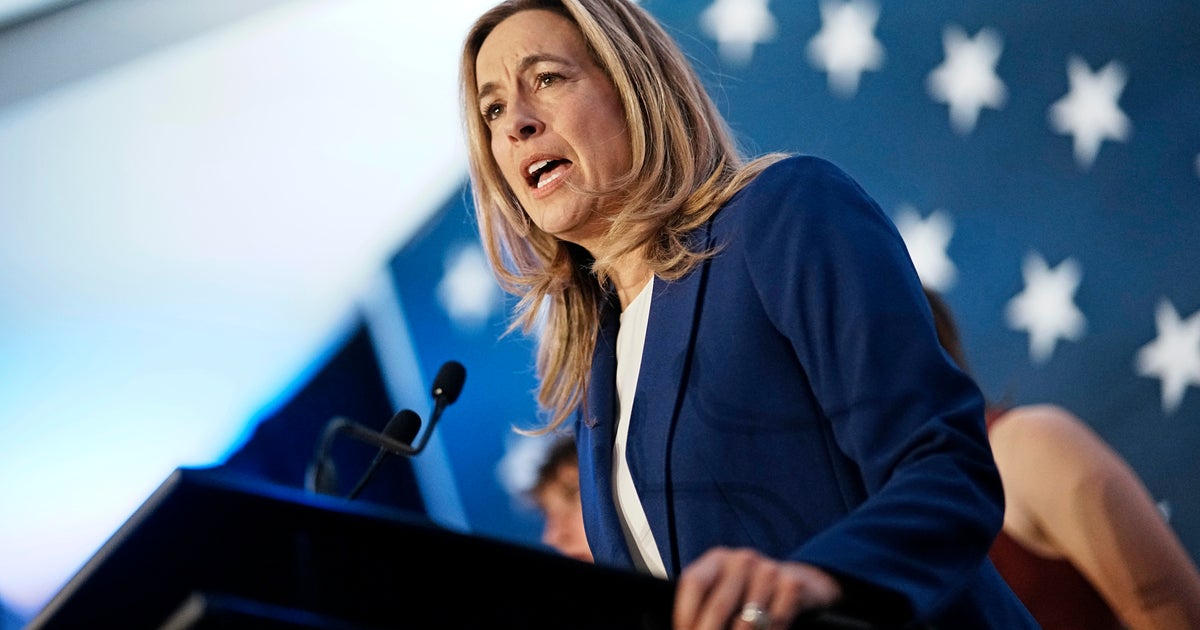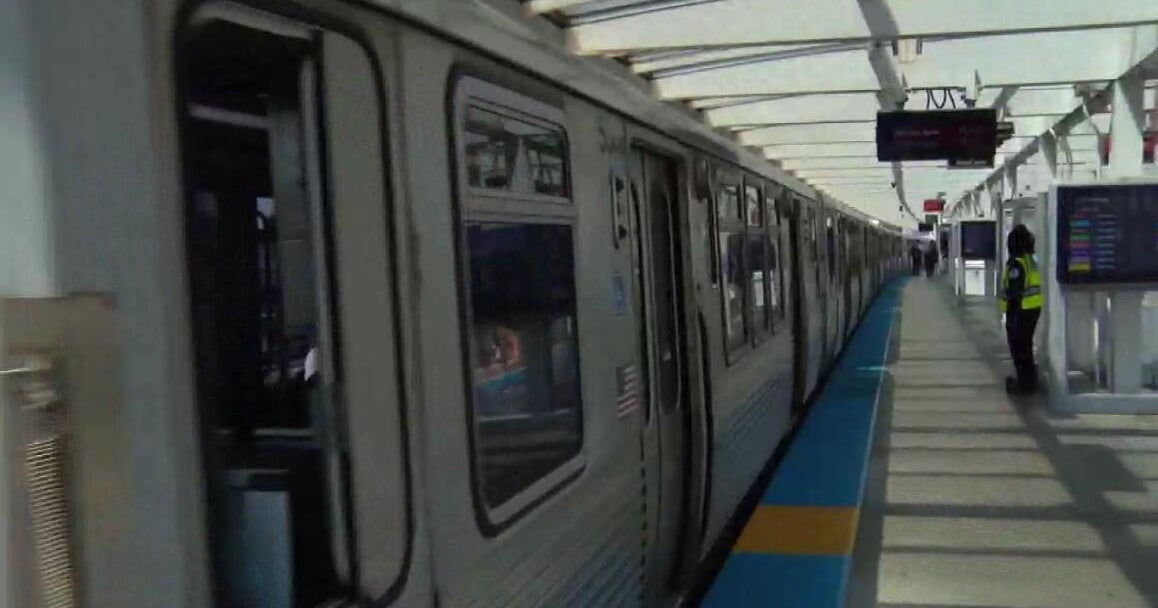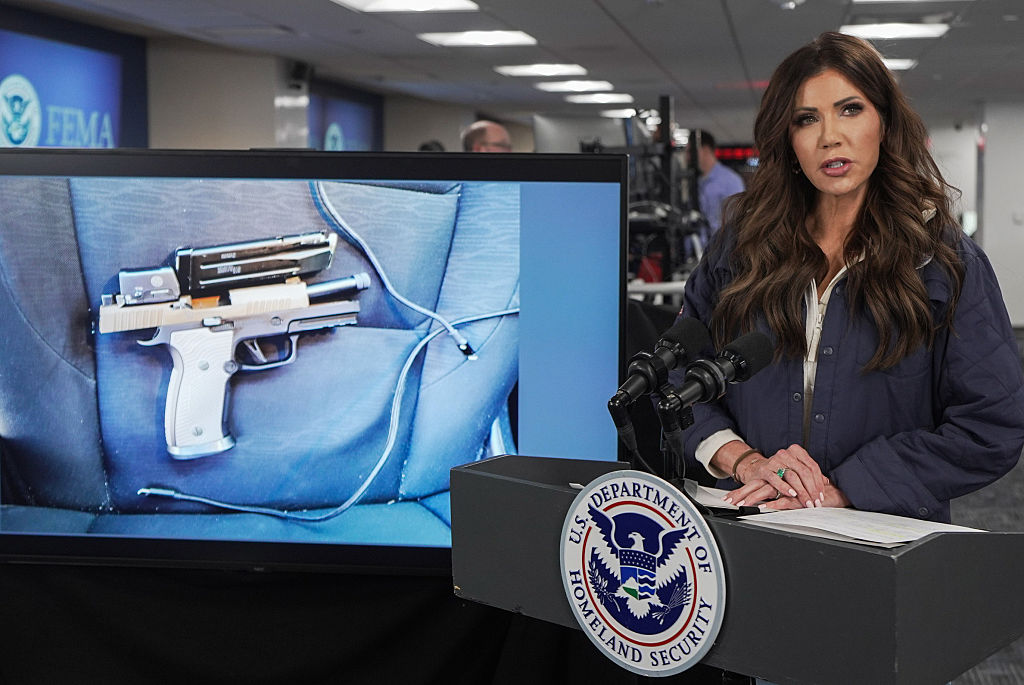Coronavirus updates from April 22, 2020
This live blog has finished. Click here for the latest coronavirus updates.
With the number of deaths blamed on the coronavirus nearing 47,000 in the United States and passing 183,000 worldwide, officials in California say COVID-19 started claiming lives on American soil more than three weeks earlier than previously thought.
The head of the Centers for Disease Control and Prevention is warning of a potentially worse second wave of coronavirus this winter. Dr. Robert Redfield told The Washington Post the new outbreak would coincide with flu season, setting up a dangerous combination for the nation's health care system.
Latest major developments:
- New model shows most states should not open until end of May.
- New York governor warns of a possible second or third wave.
- Atlanta mayor says Georgia governor's reopening of state will be "deadly."
- Two pet cats in New York test positive for COVID-19.
- Photos show dramatic decline in air pollution around the world.
- U.N. food agency chief says word could see famines of "biblical proportions" within months.
Detailed information from the CDC on coronavirus treatment and prevention.
UN chief warns pandemic is "fast becoming a human rights crisis"
United Nations Secretary-General Antonio Guterres says the coronavirus pandemic is "a human crisis that is fast becoming a human rights crisis." He warned that using the pandemic to erode human rights would be "unacceptable."
The U.N. chief said in a video message Thursday that there is discrimination in the delivery of public services to tackle COVID-19 and there are "structural inequalities that impede access to them."
Guterres said the pandemic has also seen "disproportionate effects on certain communities, the rise of hate speech, the targeting of vulnerable groups, and the risks of heavy-handed security responses undermining the health response."
And he noted that with "rising ethno-nationalism, populism, authoritarianism and a pushback against human rights in some countries, the crisis can provide a pretext to adopt repressive measures for purposes unrelated to the pandemic. This is unacceptable."
The secretary-general didn't name any countries or parties but stressed that governments must be "transparent, responsive and accountable" and that press freedom, civil society organizations, the private sector and "civic space" are essential.
He stressed that any emergency measures - including states of emergency - must be "legal, proportionate, necessary and non-discriminatory, have a specific focus and duration, and take the least intrusive approach possible to protect public health."
Guterres released a report on how human rights must guide the response to COVID-19 and recovery from the pandemic.
He said, "The message is clear: People - and their rights - must be front and center."
— CBS/AP
DeVos excludes DACA recipients, foreign students from rescue package grants
The Trump administration says most international students and any students who entered the United States illegally will be barred from receiving emergency education grants.
Congress approved the grants as part of a $2.2 trillion coronavirus rescue package.
New guidelines issued by the Education Department on Tuesday say that only students who qualify for other federal financial aid can receive the money.
College leaders and student advocates have blasted the change, saying Education Secretary Betsy DeVos is imposing new limits that were not included in the rescue package.
But Education Department officials say the guidance is in line with other federal rules and the bill that created the grants.
Child abuse cases go unreported amid pandemic
Child welfare agencies say that child abuse cases are going largely unreported as a result of the pandemic. With schools closed, teachers are unable to report suspected cases of abuse and neglect. Associate professor of public policy, psychology and neuroscience Anna Gassman Pines joined CBSN to discuss the issue.
Trump targets immigrant visas he's long sought to limit in new coronavirus proclamation
President Trump on Wednesday signed a proclamation to temporarily suspend certain visas for foreigners seeking to move permanently to the U.S., decreeing that the admission of new immigrants would hurt American workers already struggling in an economy ravaged by the coronavirus pandemic.
The 60-day restriction, which will take effect Thursday night, applies to people overseas seeking to become U.S. permanent residents through petitions filed by their family members or employers in the U.S. The order also pauses the diversity visa lottery, a frequent target of Mr. Trump's ire. Since it restricts family-based immigration, the main way people move permanently to the U.S., the proclamation is expected to block the entry of tens of thousands of people, according to experts.
Read more here.
Texas says its ban on abortion is over
Texas will allow abortions to resume in the state after weeks of legal sparring, according to a Wednesday night filing from the state's Attorney General. For more than four weeks, abortion services have been largely unavailable in the state, marking the first time the procedure has been halted in a state in nearly 50 years.
On Tuesday evening, Governor Greg Abbott's March 21 executive order suspending "non-essential" medical procedures amid the coronavirus pandemic — which the Attorney General Ken Paxton later clarified to include abortion — expired. On Wednesday, the new executive order went into effect. The new directive suspends some medical procedures, but offers exceptions to providers that don't use hospital beds or request personal protective equipment, like masks and gloves, from public sources.
Texas' abortion providers argued they qualified for those exceptions — and the state agreed.
"... there is no case or controversy remaining, as Plaintiffs have already certified they are in compliance with an exception," Texas' attorney general wrote in the filing Wednesday evening.
Teen uses flying lessons to airlift supplies to rural hospitals in need
100 inmates and staff have coronavirus at Ohio facility, BOP says
There are 100 total cases of coronavirus among inmates and staff at Federal Correctional Institution Elkton in Ohio, the Bureau of Prisons said Wednesday. The institution has more open cases among inmates and staff than any other federal prison in the country.
Among the entire federal system, 566 inmates and 342 staff members are currently positive for the virus, the BOP added. Nearly 250 inmates and 52 staff members have recovered, and 24 inmates have died.
New model shows most states should not open until end of May
Trump says he doesn't know HHS vaccine expert who says he was removed from post after pressing for vetting of hydroxychloroquine
President Trump said Wednesday that he has no knowledge of Dr. Rick Bright, the Health and Human Services vaccine expert who said he was removed from his post because he insisted on an aggressive vetting of the use of drugs the administration, including President Trump, touted as potential "game changers" in the treatment of COVID-19.
Asked about Bright at the task force briefing, the president replied, "I've never heard of him."
"You just mentioned a name. I've never heard of him," Mr. Trump told the reporter. "When did this happen?"
The president shrugged and said, "Guy says he was pushed out of a job — maybe he was, maybe he wasn't ... I don't know who he is."
Coronavirus impacting African Americans at disproportionate rates
A new study lists the underlying conditions that increase the risk for coronavirus patients. The top three — hypertension, obesity and diabetes — are more likely to be found among African Americans, a community in which the virus is taking an especially heavy toll.
COVID-19 has left two gaping holes in Sandi Thomas' life. "Mommy and Penny are gone and it's very sad and lonely in there," Thomas said.
On March 18, her 87-year-old mother, Gertrude, was admitted to a Baltimore hospital. Just five days later, her sister, Penny, was too. Both died within days of each other in the same intensive care unit.
"Are you holding it together?" CBS News asked.
"Through the grace of God," Thomas said.
In Maryland, black people account for 31% of the population but almost 45% of the probable coronavirus deaths. In Louisiana, African Americans make up 33% of the population, but 56% of the deaths. Cities like New York, Chicago and Washington D.C. also show similar disparities.
Trump signs executive action suspending immigration into U.S.
President Trump announced during the coronavirus briefing that he has signed the executive order suspending immigration into the U.S. for 60 days.
He told reporters at the briefing that the order would ensure "that unemployed Americans of all backgrounds will be first in line for jobs as our economy reopens." He said the action would also preserve health care resources for American patients. Mr. Trump also said that he'd look at extending or amending it at the appropriate time.
The president said he signed the document just before coming into the briefing room.
Trump called Georgia governor to say he disagreed with his proposal to reopen some businesses
President Trump may want to see the country reopen its businesses, but he said he has reservations about Georgia's plans to open businesses like beauty salons, spas, tattoo shops and barber shops beginning Friday.
"I told the governor of Georgia, Brian Kemp, that I disagree strongly with his decision to open certain facilities which are in violation of the Phase 1 guidelines for the incredible people of Georgia," Mr. Trump said at the Coronavirus Task Force briefing Wednesday.
He said that Kemp, a Republican, must do what he thinks is right, but added, "I disagree with him on what he's doing." Opening spas, beauty salons, and barber shops in Phase 1 is "just too soon," he said.
He said he loved all the people who use those services, but said "they can wait a little bit longer... because safety has to predominate." Mr. Trump said again, though, that Kemp has to do "what he thinks is right."
HHS ousts vaccine expert who pushed back on COVID-19 treatment
The former director of the agency involved in developing a vaccine for COVID-19 said he was removed after he pushed to vet and to limit drug treatments often touted by President Trump, the use of chloroquine and hydroxychloroquine.
"Specifically, and contrary to misguided directives, I limited the broad use of chloroquine and hydroxychloroquine, promoted by the Administration as a panacea, but which clearly lack scientific merit," Dr. Rick Bright said in a statement released by his lawyers Wednesday.
In tweets and public remarks, Mr. Trump has referred to hydroxychloroquine as a potential "gamechanger" in treating COVID-19. The president has recommended the use of the antimalarial drug as a potential treatment for the coronavirus, despite limited evidence that the drug would be effective.
Bright was the director of the Biomedical Advanced Research and Development Authority (BARDA) and HHS deputy assistant secretary for preparedness and response by the administration. He said that he was "involuntarily transferred to a more limited and less impactful position at the National Institutes of Health," a transfer that he believes came in response to his "insistence that the government invest the billions of dollars allocated by Congress to address the COVID-19 pandemic into safe and scientifically vetted solutions, and not in drugs, vaccines and other technologies that lack scientific merit."
Atlanta mayor says Georgia governor's reopening of state will be "deadly"
Atlanta Mayor Keisha Lance Bottoms on Wednesday expressed her disagreement with Georgia Governor Brian Kemp's decision to re-open the state, claiming it will be "deadly" for many people in her community.
"It concerns me deeply that we are still seeing an upward trend in our state and we are rushing to reopen businesses," she said on CBSN.
"What I've said is I hope the governor is right and I'm wrong because if he's wrong more people will die," Bottoms added.
Before-and-after photos show dramatic decline in air pollution around the world
As humans continue to stay indoors under lockdown due to the coronavirus pandemic, the Earth is slowly healing. Wild animals have taken to roaming the streets, clear waters have returned to the Venice canals and the world is literally shaking less.
With billions of people quarantined and businesses closed, travel has all but come to a halt, significantly decreasing carbon dioxide emissions. In fact, 2020 is on track to see the largest yearly global decline ever in emissions, reports CBS News' Jeff Berardelli.
Adding to the evidence, two weeks ago typically smoggy Los Angeles had the cleanest air of any major city on Earth, according to IQAir, a tech company that tracks global air quality.
"About a year ago, Los Angeles was ranked the worst air quality in the entire country," CEO of IQAir Glory Dolphin Hammes told CBS News. "Now, we're seeing some of the best air quality, not just in the country, but in the world."
Minnesota congressman wants federal advertising dollars to go to local media
Minnesota Congressman Jim Hagedorn and his colleagues sent a letter to President Trump urging that any federal advertising dollars, associated with new federal programs relating to the coronavirus pandemic, be directed toward local media outlets.
In the letter, Hagedorn and a bipartisan group of colleagues expressed the importance of local news and information from radio, television and newspapers during the COVID-19 pandemic. These media outlets provide "the most trusted sources in times of emergency and disaster," he wrote.
Local media outlets are experiencing huge advertising revenue losses, diminishing their ability to provide news to the public. "[W]ithout advertising revenue, local media outlets cannot survive."
California lifts statewide hospital restrictions on elective surgery
California Governor Gavin Newsom announced Wednesday that he would lift the restrictions placed upon hospitals that put on hold all elective surgical procedures in anticipation of a massive wave of COVID-19 patients overwhelming the state's health care system.
"We are in a position today to begin to pull back and lean in by beginning to schedule surgeries once again throughout not only our hospital system but our broader health care delivery system," the governor said. "These are surgeries that are not only scheduled but essential. Tumors, heart valves, the need for people to get the kind of care that they desire. If it's delayed, it ultimately becomes denied. If it's delayed it can become acute."
Up to 90% of minority and women owners shut out of Paycheck Protection Program, experts fear
Flaws in the Paycheck Protection Program are hindering small businesses owned by minorities and by women from securing federal coronavirus relief, according to lending experts and interviews with numerous owners.
Many diverse business owners applied for loans through the Small Business Administration program, only to come up empty because they either didn't qualify or the funds had been exhausted by the time their applications were processed.
"Based on how the program is structured, we estimate that upwards of 90% of businesses owned by people of color have been, or will likely be, shut out of the Paycheck Protection Program," said Ashley Harrington, director of federal advocacy and senior council for the Center for Responsible Lending, a non-profit group that combats abusive lending practices and recently examined the loan program's parameters.
"Roughly 95% of Black-owned businesses, 91% of Latino-owned businesses, 91% of Native Hawaiian or Pacific Islander-owned businesses, and 75% of Asian-owned businesses stand close to no chance of receiving a PPP loan through a mainstream bank or credit union," the center warned on April 6 as the Paycheck Protection Program, or the PPP, was starting to take applications.
Harvard says it won't take $8.6 million in coronavirus relief for students after all
Harvard announced Wednesday it won't take $8.6 million in coronavirus relief funding after all, a day after coming under fire from President Trump.
On Tuesday, a reporter asked Mr. Trump at the daily White House briefing if he was going to request that big companies return money they received through the government's small-business loan program, as Shake Shack had announced it would do. The president instead brought up Harvard, which had an endowment of $40.9 billion last year, and said it's "going to pay back the money."
However, Harvard disputed Mr. Trump's assertion. The university said it did not apply for the government's Paycheck Protection Program for small businesses — nor did it receive any funds through that program. Instead, Harvard said, it was "allocated funds as part of the CARES Act Higher Education Emergency Relief Fund."
The Higher Education Emergency Relief Fund makes up about $14 billion of the $2.2 trillion stimulus package signed by Mr. Trump last month. Harvard initially said it planned to use all of the nearly $9 million it received to "provide direct assistance to students facing urgent financial needs due to the COVID-19 pandemic."
But on Wednesday, the university announced a reversal. In a statement, the university said it was "concerned ... that the intense focus by politicians and others on Harvard in connection with this program may undermine participation in a relief effort that Congress created and the President signed into law for the purpose of helping students and institutions whose financial challenges in the coming months may be most severe."
"As a result of this, and the evolving guidance being issued around use of the Higher Education Emergency Relief Fund, Harvard has decided not to seek or accept the funds allocated to it by statute," the university added.
2 pet cats in New York test positive for COVID-19
Two pet cats in New York state have tested positive for COVID-19, the disease caused by the new coronavirus that has claimed more than 180,000 lives globally, according to the U.S. Department of Agriculture (USDA). This comes after several lions and tigers contracted the disease at the Bronx Zoo earlier this month.
The USDA said these are the first pets in the U.S. to test positive for COVID-19. They had mild respiratory illnesses and are expected to recover. Officials say the cats may have contracted the disease from people in their households or neighborhoods. The pets lived in separate areas in New York, the USDA pointed out.
"... A veterinarian tested the first cat after it showed mild respiratory signs. No individuals in the household were confirmed to be ill with COVID-19," USDA said in its press release. "The virus may have been transmitted to this cat by mildly ill or asymptomatic household members or through contact with an infected person outside its home."
In the case of the second feline, the owner of the cat tested positive for COVID-19 prior to the cat showing signs. Another cat in the household has shown no signs of illness, according to the USDA.
China lashes out over "malicious and abusive" lawsuit filed by Missouri over alleged COVID-19 cover-up
After Missouri became the first U.S. state to sue the Chinese government over its handling of the coronavirus, Chinese Foreign Ministry spokesman Geng Shuang dismissed the accusations and called the lawsuit "malicious and abusive," adding it "has no factual and legal basis."
China's response was not subject to the jurisdiction of U.S. courts, Geng said, calling on Washington to "refute and reject such abuse of litigation."
Missouri sues China over coronavirus
The state of Missouri has become the first to sue the Chinese government over the coronavirus pandemic, saying the communist country didn't do enough to stop the deadly outbreak. Missouri Attorney General Eric Schmitt alleges China suppressed information, arrested whistleblowers and denied the contagious nature of coronavirus that led to deaths and job losses in Missouri.
The suit was filed in the Eastern District of Missouri Thursday morning. Republicans, in particular, are aggravated over China's handling of the outbreak, and a recent Pew poll found Americans' trust in China has dropped amid the pandemic.
"COVID-19 has done irreparable damage to countries across the globe, causing sickness, death, economic disruption, and human suffering. In Missouri, the impact of the virus is very real - thousands have been infected and many have died, families have been separated from dying loved ones, small businesses are shuttering their doors, and those living paycheck to paycheck are struggling to put food on their table," said Schmitt.
"The Chinese government lied to the world about the danger and contagious nature of COVID-19, silenced whistleblowers, and did little to stop the spread of the disease. They must be held accountable for their actions."
99% of U.S.S. Roosevelt sailors have been tested
The U.S. Navy announced Wednesday that 99% of the sailors on the U.S.S. Roosevelt have been tested for the coronavirus. The Navy added that 777 tested positive, and 3,919 tested negative — and said that 63 of the positive patients have since recovered.
Six of the 777 positive sailors are in U.S. Naval Hospital Guam being treated for COVID-19 symptoms, and none are in the ICU, the Navy added. One sailor on the ship has died from the virus.
The Navy also announced two other COVID-19 deaths not related to the U.S.S. Roosevelt. One patient, a Department of the Navy civilian employee assigned to Personnel Support Detachment Oceana, died on April 19; the other, a Department of the Navy civilian employee assigned to Washington Navy Yard, died on April 21.
Harvard says it won't return $8.6 million in coronavirus relief for students
Update: Since this post was published, Harvard has announced it won't take the $8.6 million in coronavirus relief for students after all. Read more here.
President Trump wants Harvard to return $8.6 million it received in coronavirus relief funding. But the Ivy League university says it's using the money to help students facing urgent financial needs during the pandemic — and it disputed the idea that it took money intended for small businesses.
A reporter asked Mr. Trump at Tuesday's White House briefing if he was going to request that big companies return money they received through the government's small-business loan program, as Shake Shack had announced it would do. The president instead brought up Harvard, which had an endowment of $40.9 billion last year.
"Harvard's going to pay back the money," Trump said. "They shouldn't be taking it. I'm not going to mention any other names, but when I saw Harvard — they have one of the largest endowments anywhere in the country, maybe in the world, I guess. They're going to pay back that money."
However, Harvard disputed Mr. Trump's assertion. The university said it did not apply for the government's Paycheck Protection Program for small businesses — nor did it receive any funds through that program.
"President Trump is right that it would not have been appropriate for our institution to receive funds that were designated for struggling small businesses," the school tweeted. "Like most colleges and universities, Harvard has been allocated funds as part of the CARES Act Higher Education Emergency Relief Fund."
Calls for increased access to vote-by-mail gain traction amid coronavirus pandemic
The coronavirus pandemic, which has led most states to shut down almost all aspects of social and economic life, is also raising questions about what life will look like by the time the general election rolls around in November.
The public got a preview of what voting in the age of the coronavirus looks like during the Wisconsin primary election. Voters in Milwaukee, waited for hours outside of polling stations on April 7, wearing masks and standing several feet apart. Only five of the city's 180 polling places were open, but thousands of citizens turned out. By Monday, there were at least seven cases of COVID-19 in Wisconsin that had been traced to the in-person voting.
Wisconsin was the outlier of several states that chose to postpone their elections or cancel in-person voting entirely, in favor of giving residents absentee ballots. The election went on as scheduled after the state Supreme Court prevented the governor from canceling in-person voting due to concerns about the coronavirus pandemic, and the U.S. Supreme Court blocked a request to extend absentee voting in the state.
With the mandatory closure of schools and businesses nationwide because of fears about spreading the coronavirus, greater access to voting by mail-in ballot - a common cause for voting rights activists - has become a mainstream issue.
"Voters have already been forced to choose between their health and casting their ballot," said Sean Eldridge, the founder and president of progressive advocacy group Stand Up America, in a conference call with reporters last week. "We must prepare our voting systems both for the upcoming primaries and the general elections this fall."
Massachusetts governor addresses rise of virus cases
Massachusetts is the 15th-most populous state – so why does it have the third-most reported coronavirus cases in the nation? Governor Charlie Baker offered an explanation Wednesday: testing volume, population density and connection to the global economy.
On testing: "If you're one of the states that tests the most, you're likely to be one of the states that finds the most positive cases."
On density: "If you look at most of the states that have the highest number of positive cases or the highest number of hospitalizations, they tend to be states that are dense, relatively speaking, compared to others, or they have particular areas of density."
On the global economy: "If you think about most of the places that have had the most significant outbreaks, they're places that have tons of back and forth – used to have tons of back and forth – travel and economic activity between here and many other places around the globe."
Kim Kardashian West calls for the release of Ohio inmate housed at virus hotspot
In her fight for criminal justice reform, Kim Kardashian West is advocating for the release of an Ohio inmate who has maintained his innocence in the killing of three people in 1994. Kevin Keith is serving time at Marion Correctional Institution, one of the largest coronavirus hot spots in the country.
Kardashian West on Tuesday tweeted about Keith, writing that he spent 10 years on death row "for a crime he didn't commit, only to find himself under threat of death again, trapped in a prison that has become the leading hotspot for COVID-19. PLEASE HELP."
In 1994, Keith was convicted and sentenced to death in the fatal shooting of two women and a 4-year-old girl in the city of Bucyrus. Then-Governor Ted Strickland commuted his sentence in 2010 to life without parole, raising questions about the evidence brought at trial and the lack of suspects, The Associated Press reported.
CDC director says potentially worse second wave could come with flu season
The director of the Centers for Disease Control and Prevention has warned of a potentially worse second wave of coronavirus later this year. Dr. Robert Redfield said in an interview with the Washington Post that the outbreak could flare up again and coincide with flu season, which could set up a dangerous double whammy for the health care system.
"There's a possibility that the assault of the virus on our nation next winter will actually be even more difficult than the one we just went through," Redfield saidt. "And when I've said this to others, they kind of put their head back, they don't understand what I mean."
"We're going to have the flu epidemic and the coronavirus epidemic at the same time," he added.
New York City's July 4th fireworks will go on, mayor says
New York City Mayor Bill de Blasio said Wednesday that the city's annual, iconic Fourth of July celebration will go forward with fireworks, CBS New York reports.
"We may not be able to do it the way we historically have," Bill de Blasio said. "One way or another, the show will go on. One way or another, we're going to celebrate the Fourth of July in a very special way in New York City."
"This is a day we cannot miss. This is a celebration that has to happen because it's about our nation, it's about all we stand for as Americans and New Yorkers, and it's a symbol of our resilience, but we're going to do it the smart way," de Blasio said.
UN food agency chief: World could see famines of "biblical proportions" within months
The director of the United Nations World Food Program has warned that the world is on "the brink of a hunger pandemic" as it grapples with the global coronavirus crisis. David Beasley said that without action, the world could face "multiple famines of biblical proportions within a short few months."
We are already facing "a perfect storm" due to wars like those in Syria and Yemen and more frequent natural disasters, among other factors, he said.
"It is critical we come together as one united global community to defeat this disease, and protect the most vulnerable nations and communities from its potentially devastating effects," Beasley told the U.N. Security Council.
Oil slump could cost Texas 1 million jobs this year alone
The world is awash in oil it doesn't need as the coronavirus paralyzes the global economy. That is costing tens of thousands of energy industry workers in the U.S. their livelihoods.
Drilling companies and refineries chopped more than 50,000 jobs in March alone, according to a report by BW Research. For the overall energy workforce, California saw the biggest drop at about 40,700 jobs or more than 4% in the initial plunge, while Texas lost more than 30,000 jobs.
New York launches tri-state testing and tracing program led by Michael Bloomberg
New York Governor Andrew Cuomo announced Wednesday that the state is launching a testing and tracing program, in conjunction with New Jersey and Connecticut, that will be developed by Michael Bloomberg.
The former New York City mayor is donating millions of dollars to help finance the program and will design the unique undertaking.
Cuomo said the program will train "an army of tracers" who will collect data on the spread of coronavirus in the tri-state area. He said the state has already started tracing with about 500 tracers.
The governor said data from extensive testing and tracing is necessary to better understand the virus, and eventually re-open the state.
"This is not going to be over any time soon," he said. "We're not going to have people lose their life because we acted imprudently."
Biden to attack Trump's virus response by focusing on four "Cs"
Joe Biden's campaign is intensifying its criticism of President Trump's leadership of the government's response to the coronavirus by focusing on four key areas of concern. A memo obtained by CBS News and sent to campaign allies and leading party activists outlines how the Biden team plans to continue sowing doubts about the president's leadership.
The sharper focus comes as Biden has said in recent days that Mr. Trump "has no interest in solving this problem and saving lives." He outlined a series of specific steps he would have taken to better organize a federal response to the pandemic.
The sharpened attacks come amid growing calls from Democratic Party activists and thought leaders for Biden to figure out a better, more prominent way to speak out regularly about the government response to the pandemic and other issues in order to maintain his advantage over the president.
ICE declines to release asylum-seekers as coronavirus spreads through jails
At least 27 of Marco's fellow immigrant detainees at a privately operated prison in the outskirts of Monroe, Louisiana, have tested positive for COVID-19. The 30-year-old Cuban asylum-seeker believes he could be next, unless he's released.
"There's fear among all of us," Marco told CBS News in Spanish over the phone, referring to other immigrants who are being detained while judges adjudicate their asylum cases. "We are not criminals. We're simply scared. We came here because we have a very real fear of returning to our home countries."
Marco, who asked for his name to be changed, is one of more than 5,500 immigrants in U.S. Immigration and Custom Enforcement (ICE) custody who have demonstrated to an asylum officer a credible fear of being persecuted or tortured in their home countries. Under a binding 2009 internal directive, ICE is generally supposed to parole immigrants like Marco who asked for asylum at an official border crossing, passed their credible-fear screenings and do not pose a public safety threat.
But under President Trump, parole approvals have plummeted, prompting one federal judge to rule last year that ICE officials in the Deep South could not deny parole to asylum-seekers without considering each case individually.
Even as coronavirus cases inside the nation's immigration jails continue to grow, ICE is not planning to proactively free asylum-seekers like Marco or additional groups of immigrants from U.S. custody, according to congressional aides briefed by the agency.
Coronavirus lockdowns show the urgency of reining in carbon dioxide emissions
This spring has seen an unintended consequence of the coronavirus lockdowns: less pollution, with cleaner skies and a drop in carbon dioxide emissions. In fact, 2020 could see the largest yearly global decline ever in emissions.
A new report from Carbon Brief projects a 5.5% reduction from 2019, and the head of the World Meteorological Organization says it could reach 6%.
An emissions drop of that size is about on par with the kind of year-after-year decrease the world would need to sustain to achieve the goal set in the Paris climate agreement of keeping the Earth's warming from exceeding 2 degrees Celsius.
But shutting down economies is not an acceptable or sustainable way to accomplish this goal. Our current situation vividly illustrates that the kind of system-wide change needed to combat climate change is truly herculean, given that emissions are still tied directly to economic growth.
NYC Mayor Bill de Blasio outlines "test and trace" plan
Mayor Bill de Blasio discussed his "test and trace" plans Wednesday to lead New York City into the the next phase of the coronavirus fight. De Blasio said the city is striving to make widespread testing available in every community, CBS New York reports.
New Yorkers who test positive would be given care "right away," and if they're unable to isolate properly, will be placed in hotel rooms.
"We'll get you the help you need. The whole idea is to help you to isolate to get well, to have the support you need, and of course get tested again to know when you're done with the disease so you can go back to your regular life," de Blasio said. "That's what this plan is all about. That's the building blocks we're putting in place now, the hotel rooms, and all the support that goes with it."
If someone turns up positive, then in addition to getting them isolated, teams will trace the contacts that person has had so they can be tested.
ICRC gives tips for authorities to deal with and prepare for flood of COVID-19 victims' bodies
The International Committee of the Red Cross (ICRC), more often associated with helping the victims of wars or natural disasters, issued recommendations Tuesday for authorities and forensic institutions handling the bodies of people who have died of COVID-19.
"Many funeral homes and morgues have been quickly overwhelmed by mass casualties from COVID-19 already. The ICRC aims to assist authorities and forensic institutions to prevent overwhelming of local capacity and to uphold the right of bereaved families during this difficult time," the recommendations, published on the ICRC's website, said.
Included in the advice was a recommendation that all people involved in managing the dead have appropriate personal protective equipment (PPE), that all measures possible be taken to respect the deceased and their communities, and that a preparedness plan be put in place to ensure capacity to deal with a surge in fatalities.
"Preventive measures should be specially adopted in detention facilities, refugee camps, and large city slums, including dispelling myths and ensuring preparedness to deal with a higher than normal number of deaths than current capacity can handle," the recommendations said.
Michigan's Democratic governor works on plan to reopen state with GOP legislature
Michigan Governor Gretchen Whitmer has garnered national attention for leading her state's response to the coronavirus, but she's facing mounting pressure to reopen the economy. As she navigates her response to the virus amid speculation she's being considered as a potential running mate for Joe Biden, Whitmer faces another challenge: working with a Republican controlled legislature that's impatient to lift restrictions in some parts of the state.
Last week, the state's Senate Republican leader, Mike Shirkey, offered a plan to ease restrictions in waves. And this week, Michigan House Speaker Lee Chatfield, a Republican from northern Michigan, pitched a regional approach based on risk factors in each county. A bipartisan group of state senators is also working on a proposal.
"We think we can prioritize public health and be reasonable in our approach to fighting COVID-19," Chatfield said in an interview with CBS News on Monday. "I don't think the state of Michigan has done that yet, but that's what our plan does." Click here to read more.
By Jack Turman and Adam Brewster
Analysis of drug touted by Trump for COVID-19 suggests it could do more harm than good
A malaria drug widely touted by President Donald Trump for treating the new coronavirus showed no benefit in a large analysis of its use in U.S. veterans hospitals. There were more deaths among those given hydroxychloroquine versus standard care, researchers reported.
The nationwide study was not a rigorous experiment. But with 368 patients, it's the largest look so far at hydroxychloroquine with or without the antibiotic azithromycin for COVID-19, the disease that had killed more than 171,000 people globally as of Tuesday.
The study was posted on an online site for researchers and has not been reviewed by other scientists. Grants from the National Institutes of Health and the University of Virginia paid for the work. Click here to read more.
World weather agency says lockdowns clearing the air, but no "substitute for sustained climate action"
The world weather agency on Wednesday said one positive effect of the coronavirus lockdowns across the globe is that carbon emissions are expected to decrease by 6% in 2020, but it noted also that the pandemic has exacerbated the socioeconomic impacts of climate change, increasing hunger and poverty around the world.
"We need to flatten both the pandemic and climate change curves," World Meteorological Organization (WMO) Secretary-General Petteri Taalas said in Geneva.
The WMO said carbon dioxide levels at one "key global observing station are about 26 percent higher than in 1970," the first year Earth Day was marked — and reported on by CBS News anchor Walter Cronkite — to call attention to changes in our planet's environment.
The U.N.'s weather agency said the coronavirus "may result in a temporary reduction in greenhouse gas emissions, but it is not a substitute for sustained climate action."
"Localized" violent clashes between residents in Paris' poor suburbs and police amid lockdown
In the Paris suburbs, police enforcing coronavirus lockdown rules have wound up in violent clashes with residents in some areas. Tuesday night, police donned riot gear as residents in some high-rise housing projects hurled stones, cans and insults.
The mayor of Saint-Denis, just north of Paris, says he understands that life under lockdown in the neighborhoods is hard, given that apartments are generally small and there's nowhere residents can go for a respite.
The death rate from COVID-19 in some of these impoverished, heavily immigrant neighborhoods is high, and they are home to many of the front-line, key workers who still have to go out every day.
Mayor Laurent Russier admits their work puts them at higher risk – and their families too.
Many others have lost their livelihoods as France's lockdown freezes the economy, so areas where unemployment was already a major problem have seen it multiply.
French government spokeswoman Sibeth Ndiaye said Wednesday that officials still considered the unrest to be "localized and limited, and therefore as of today, there is no real cause for alarm, but we will remain extremely vigilant."
Family says Detroit man died with virus symptoms after "begging for his life" for admission at 3 ERs
A Detroit family is mourning a man they say was turned away by three hospitals where he sought testing for the new coronavirus.
"He was begging for his life, but no one would help him at all. Like they just kept sending him away," said Keith Gambrell, the stepson of 56-year-old Gary Fowler.
Gambrell said he was concerned his stepfather had coronavirus. He took him to three different emergency rooms, but said each time Fowler was not admitted or tested, despite having many of the COVID-19 symptoms.
"I honestly believe it was because my father was black. They didn't honestly take his symptoms serious enough to give him a test," Gambrell told "CBS This Morning" national correspondent Jericka Duncan.
The day before Fowler died, his father David died of COVID-19. Soon after, Fowler's wife, Cheryl, began experiencing symptoms of her own, and ended up in the hospital. Click here to read more.
Arrest of Idaho woman at playground closed over coronavirus sparks protest
An Idaho woman was arrested Tuesday after police said she violated city orders by trespassing on a city playground that was closed to stop the spread of the coronavirus. CBS affiliate KBOI-TV reports that 40-year-old Sara Brady, of Meridian, was arrested and charged with one count of misdemeanor trespassing.
Following Brady's arrest, which was captured on social media, there were protests held at Meridian City Hall, KBOI reported. Station KTVB reported that roughly 100 people protested.
"I feel like I was singled out because I was the only person that was arrested," Brady told KBOI. "I wasn't the only person standing on the bark. I definitely wasn't playing on the playground equipment. I wasn't swinging, never touched them. But yeah, I do feel like I was singled out and maybe it was because I asked too many questions."
Meridian police said they told a group of people gathered on the playground that they could move to the other areas of the park. KBOI reported. The playground was wrapped with caution tape and signs indicated the it was closed due to COVID-19. Click here to read more.
Philippines police fatally shoot man confronted for violating lockdown after warning from president
A police officer in the Philippines has shot a 34-year old man to death just days after President Rodrigo Duterte warned stricter enforcement of the country's stay-at-home order, which he likened to martial rule, might be necessary.
The incident occurred on Tuesday in a suburb of the capital Manila, where a lockdown has been in place for more than a month to curb the spread of the coronavirus. Police say Winston Ragos, a retired Filipono soldier, was out on the streets in violation of the lockdown rules.
It's not clear why authorities ended up pointing their guns at Ragos, but video circulating on social media shows him reaching for his bag before two gunshots are heard. He then turns around, throws the bag to down and falls to the ground. In one video a woman can be heard asking police why Ragos wasn't searched before he was shot.
In a statement, the police say officers "learned" that Ragos was carrying a loaded gun. The statement did not elaborate on how they found that out, but investigators say they recovered a .38 caliber revolver with no serial number.
The officer who shot Ragos has surrendered and will face an inquiry, according to Quezon City police director General Ronnie Montejo.
Southern states largely going it alone with decisions to reopen
Governors in 17 states have committed to regional coordination to reopen their economies during the coronavirus outbreak — but none are in the South, where leaders are going it alone, just as they did in imposing restrictions.
As questions about when and how to ease virus-control measures become increasingly politically charged, governors in the Deep South have resisted any appearance of synchronization, instead driving home their message that each state must make its own decision.
Georgia Gov. Brian Kemp plans to have many of his state's businesses up and running again as soon as Friday. Fellow Republican Tennessee Gov. Bill Lee announced that most businesses will begin resuming operations as soon as next week.
Some other Republican leaders were taking smaller steps, like reopening their beaches. In the virus hot spot of Louisiana, Democratic Gov. John Bel Edwards was also taking a more cautious approach, announcing he'll first allow some non-emergency medical procedures to resume next week.
But no one wants to coordinate. Click here to read more.
Poll shows South Koreans widely back eased restrictions as nation reports more progress vs. COVID-19
South Korea has reported fewer than 15 new COVID-19 cases for the fourth day in a row, reaffirming the apparent success of early efforts in the country to test widely for the disease, quarantine those infected and quickly trace their contacts for monitoring.
Amid the success, Seoul relaxed strict control measures this week that had been in place since March 9 — largely because they've taken a significant toll on the nation's economy, with unemployment skyrocketing and much of the economy shuttered.
While the government has lifted some orders advising churches, gyms and bars to close, for example, it has warned South Koreans not to let their guard down completely.
Anyone who falls ill now is asked to stay home for 3-4 days, rather than two weeks as they had been, and officials still stress the need for good hand washing and other personal hygiene, along with social distancing where possible.
A new poll released by the Seoul Metropolitan Government shows 97% of respondents agreed the time was right to ease the strict measures implemented in February, with most citing the economic impact.
- Jen Kwon
California health care worker's car broken into, with N95 masks and gloves stolen
Police often remind people to take out or hide valuables when leaving their cars, but amid the coronavirus pandemic, what's considered valuable has changed.
"When I got to my car, basically the window was smashed, glass was on the ground," David Seto, a health care worker, told CBS Los Angeles. "So I looked in there and saw what was taken."
Seto, who works at the VA hospital in Pasadena, had parked his car overnight in a South Pasadena garage. He said the thieves knew exactly what they wanted.
"It looked like they went right for the N95 masks and some gloves, like medical gloves," he said.
A frightening thought, especially since Seto works on the frontlines at the hospital. Click here to read more.
India implements new law to protect doctors facing attacks amid COVID-19 crisis
India's government has implemented a new law to protect medical workers from abuse and attacks by members of the public as they battle the country's coronavirus epidemic.
The executive order, signed by President Ram Nath Kovind and valid for six months (but indefinitely if approved by parliament), makes attacks on health care workers a non-bailable offense and proscribes a prison sentence from six months to seven years for anyone convicted of the crime.
The new law comes after a string of attacks and discriminatory attacks against doctors and nurses fighting the coronavirus.
"No incident of violence or harassment against them [doctors] will be tolerated," Prakash Javadekar, a government minister, said Wednesday.
Thousands of doctors had been scheduled to hold candlelight vigils, protesting the attacks and demanding protection, outside hospitals Wednesday night, but the events were called off after the government promised their demands for legal protection would be met.
On Sunday night in the southern Indian city of Chennai, a doctor had to secretly bury his colleague, Dr Simon Hercules, who died of COVID-19, at a cemetery with the help of just two hospital staff after a mob attacked their ambulance, apparently fearing the burial would spread the virus.
In two other incidents, people refused to allow two other doctors who died from COVID-19 to be given their last rites. Earlier this month, two female doctors at a Delhi hospital were assaulted by a local resident "for spreading coronavirus" when they were out buying groceries.
In Madhya Pradesh state, a group of health workers was attacked by a mob when they visited a neighborhood to conduct coronavirus screening.
Minority-owned small businesses could see relief in new $484 billion aid package
On top of the disproportionate health impact the coronavirus has had on communities of color, the economic toll has also been particularly severe for minority business owners. Many of these entrepreneurs already faced structural challenges in establishing and maintaining their companies.
On Tuesday, lawmakers in Washington took a step toward ramping up relief to those businesses, with the Senate reaching a deal to expand funding for the Paycheck Protection Program (PPP), the main vehicle to provide loans to small businesses to cover payroll and certain other expenses.
The program ran out of its initial $349 billion in funding last week. The new bill allocates an additional $310 billion to the program and, crucially, $60 billion of that money is set aside for small and medium-sized financial institutions, with the goal of funneling more money to small, rural and minority-owned businesses.
As COVID-19 cases near 20,000 in India, expert warns real "test" will be this summer after lockdown
The number of confirmed COVID-19 cases in India jumped Wednesday to 19,984. With 50 new fatalities from the coronavirus disease — the highest number recorded in a single day in India since the pandemic struck — the death total now stands at 640.
The government also said the rate of recoveries from the disease was increasing, with 3,870 people having successfully fought it off so far.
India has been under nationwide lockdown orders since March 25, which is currently scheduled to end on May 3 but could be extended.
As the lockdown takes a devastating toll on the country's economy, however, the government this week began relaxing the restrictions in select areas less affected by the virus. On Wednesday, the government added school bookshops, electric fan stores, select public utilities, bread factories, and milk processing units to the list of businesses that can now open in less affected areas.
Dr V K Paul, a senior doctor with the government's policy think tank Niti Aayog, warned in an interview with The Indian Express newspaper that the period after the lockdown ends would be crucial to "test the resolve" of India's people.
"We cannot afford to fritter away the lockdown gains made at a phenomenal economic cost and hardship. We have to keep the virus transmission under check and ensure that no new peaks appear. June and July months will test our resolve," Paul said.
Japan is dealing with another COVID-19 outbreak on a cruise ship
Japan has another cruise ship coronavirus epidemic on its hands — this time among the crew of an Italian vessel docked in Nagasaki.
The Costa Atlantica wasn't even supposed to be in Japan. The ship had originally contracted to have repairs done in China, but with the COVID-19 pandemic raging, the ship instead sailed in to dock at Mitsubishi Shipbuilding's Koyagi plant in southwest Japan in late January.
Japanese media said the regional government had asked the ship's 623 crew to stay on board.
The first infection turned up on April 20, and of the 57 crew members who had close contact with the first patient, 33 have now tested positive. All have mild symptoms, and none are Japanese nationals.
The cluster of infections comes two months after 700 people contracted the virus aboard the Diamond Princess cruise ship, which was docked in Yokohama.
California officials say 1st U.S. COVID-19 death was weeks earlier than previously thought
Health officials say two people died with the coronavirus in California weeks before the first reported death in the United States from the disease. Santa Clara County officials said Tuesday the people died at home Feb. 6 and Feb. 17. The first reported death in the nation from the virus was on Feb. 26 in Kirkland, Washington.
The Medical Examiner-Coroner received confirmation Tuesday that tissue samples sent to the U.S. Centers for Disease Control and Prevention tested positive for the virus, officials said.
The announcement came after California Governor Gavin Newsom promised a "deep dive" update Wednesday of the state's ability to test for the coronavirus and to track and isolate people who have it. That is one of the six indicators he says is key to lifting a "stay-at-home" order that has slowed the spread of the disease while forcing millions of people to file for unemployment benefits.
"This will go to the obvious questions and queries that all of us are asking: When? ... When do you see a little bit of a release in the valve so that we can let out a little of this pressure," Newsom said Tuesday. Click here to read more.
Many with criminal records need not apply for Paycheck Protection Program
Criminal records are shutting some small-business owners out of the Paycheck Protection Program.
It's supposed to be a lifeline for small businesses, helping them stay afloat and keep employees on the payroll during the coronavirus pandemic.
But government guidelines say businesses are ineligible if anyone who owns at least 20% of the company is incarcerated, under indictment, on probation or parole, or had been convicted of a felony within the last five years.
Would-be applicants and their advocates say the restrictions are a slap in the face for those who have served their time, especially from an administration that has trumpeted second chances. Click here to read more.
New research shows LA County's rate of infection could be 40 times higher than confirmed
In Los Angeles County, more than 15,000 people have tested positive for COVID-19, but health officials announced this week that antibody tests show the rate of infection could be 40 times that number.
Serology tests were used in a study conducted earlier in April by the University of Southern California and the LA County Public Health Department. The tests, which detect antibodies in an individual's blood to determine if that person had the coronavirus, showed roughly 320,000 people, or about 4% of Los Angeles' population, have been infected with COVID-19, CBS Los Angeles reports.
Read more here.
Cuomo says New York plans to double testing capacity
New York Governor Andrew Cuomo announced Tuesday that the state aims to double coronavirus testing capacity from 20,000 tests per day to 40,000 tests per day.
Cuomo said it will take "several weeks, at best" to make the jump.
"It's just, in some ways, an outrageous goal," Cuomo said. "But this is New York, and we're accustomed to outrageous goals."
